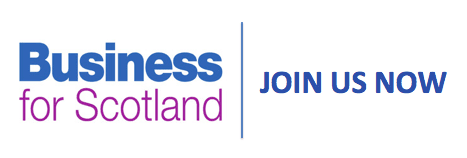Levels of unsecured personal borrowing (credit cards, store cards, car loans, personal loans) are almost back to 2008 levels after the single largest increase in 11 years. Rising 10.8 per cent year on year to November, the total grew to £192.2 billion, close to the September 2008 figure when, as the crash set in, personal borrowing hit £208bn.
December’s figures are still to come and we can expect another big increase – so should we be worried about the economy? In last week’s article I predicted the rise and said a 20 per cent increase year on year would bring a sharp consumer spending slowdown, and so 10.8 per cent in November puts us into interesting territory.

Consumerism is out of control, as we buy more and more cheap throwaway items
It’s also a little worrying that UK households have £66.7bn of debt sitting on credit cards, a £600 million increase on October. A lot of new debt is at the highest interest rates. Long-term record-low interest rates seem have lulled people into a false sense of security, making living with high personal debt seem less risky and the new norm. The trouble is that almost three-quarters of our GDP is driven by consumer spend, wages are stagnating, the Government’s coffers are empty, our balance of payments is terrible and the Brexit vote has weakened sterling. Quantitative easing isn’t really an option as Government bonds will be less attractive to buyers. To put it another way, the UK economy is entering very dangerous waters, and we have no compass, no lifeboats and no lifejackets, while Brexit has us sailing away from the main shipping lanes where help is a long way away if we need it. Capitalism is actually a good system. However, it now exists in parallel with two other systems that overwhelm it and undermine its benefits. Those are consumerism and financialisation.
Consumerism is out of control and most of the stuff we buy is junk – cheap throwaway clothes, must-have gadgets we never use, toys kids will never play with, electronic devices designed to break down that are cheaper to replace than repair.

Banks now email and text offers to increase the limit on your card
A generation ago we bought the stuff we needed to live. We had little money left for the high-profit, high-turnover goods that drive consumerism and so consumerism wasn’t the economic driver it is today. Back then there were two sources of demand – the turnover of existing money in the economy and credit, money lent to companies and individuals for a reason. I say “for a reason” because you used to sit in front of your bank manager and give the reason for the loan before they would approve it.
Nowadays, banks send you texts saying you have been pre-approved for a higher credit limit on your credit card. Get into trouble and you can do a debt consolidation loan, effectively a bank betting that if it buys your debt and gives you longer to pay it back with lower monthly payments you will be able to afford to keep spending – and so we did Right-wing western governments invented a third source of demand, financialised consumption, and the economy grew as people borrowed to consume. Gordon Brown even claimed to have “put an end to boom and bust” but we were simply mortgaging our future. Since the 1990s, personal debt has multiplied by 500 per cent. This didn’t concern the right-wing economists as they claimed people would only borrow as much as they could afford to pay back (it was one of the golden rules of the 90s). In 2006-07, when borrowing was approaching £200bn, I was told by a Bank of England monetary policy committee member not to worry as he had seen the latest retail figures and we’d never had it so good.
Some have likened the financialisation of everyday lives to modern slavery as we now owe so much our freedoms are limited. This has been a major contributor to the lessening of the bargaining power of unions in the same period. Workers get deeper into debt and have less power to ask for pay rises.
Simultaneously, the banks saw big profits in unsecured lending and sought to invest in assets such as houses where offering higher mortgages actually increased the value of the asset lent against – what could possibly go wrong?
When the recession I was predicting came in 2008 it wasn’t what I was expecting, as it was the mortgage sector that failed and not the personal debt market.
The problem is that the credit crunch and the resultant low interest rates have meant that unsecured personal debt is now approaching dangerously unsustainable levels meaning that government debt, although still a problem, is possibly less of a problem than consumer debt. The banks collapsed first, so we bailed them out, leaving no money to bail out the people, but both are economic actors in the growth equation and if you stop seeing consumers as people on whose debt you make value judgements and just see them as another economic growth factor then we can see that bailing out banks and not the private debtors is just punting the problem down the road.
In modern economic history, every crash shows a big rise in household debt just before the crisis, whereas government debt levels pre-crisis are variable – so why austerity and not delivering public debt as the leading policy? I would be more worried if interest rates were set to soar in 2017 but I can’t see that happening. However, Brexit will impact on inflation and if the pound falls further against the currencies of the nations we import most from, then food and clothing inflation will start to squeeze consumption.
If the housing market stumbles (as I think it will), late 2017 could see a mild recession, mild except for the fact we have no protection from it. If personal debt did increase significantly again in December and sales are down (as some retailers suggest), we are spending less but borrowing more of what we spend and that’s not sustainable. If interest rates stay low, there won’t be a tsunami of personal bankruptcies, just a steady decline in spending till the UK becomes a stagnant growth, high inflation zombie economy.
In response to a request for a solution I will quote from a previous article: Just as it was felt we needed to refinance the banks to avoid economic collapse, serious thought must be given to refinancing the public to maintain confidence in consumer spending; debt relief for ordinary people, people who actually paid for the bank bailout. I would implement another round of QE but this time the money goes to the public to repay personal debt prior to the increase in interest rates and inflation, or we risk being back at square one with no plan B for the people.








Interesting article and acute observations , yet you have no solution to put forward?
Or even show us an example of an equivalent economy, in the EU, North America or Asia , where the problem is “solved”.
First of all I accept that article doesn’t have solutions but I have written many times about my theories on living wage – basic income – sovereign money and bailing out consumers in the same way as we have bailed out banks, I will add some links and a conclusion.
Secondly I can’t point out to where it has been solved as its a rising global problem – there have been some interesting attempts at QE for the people in USA and Australia in particular but highly limited in scope.